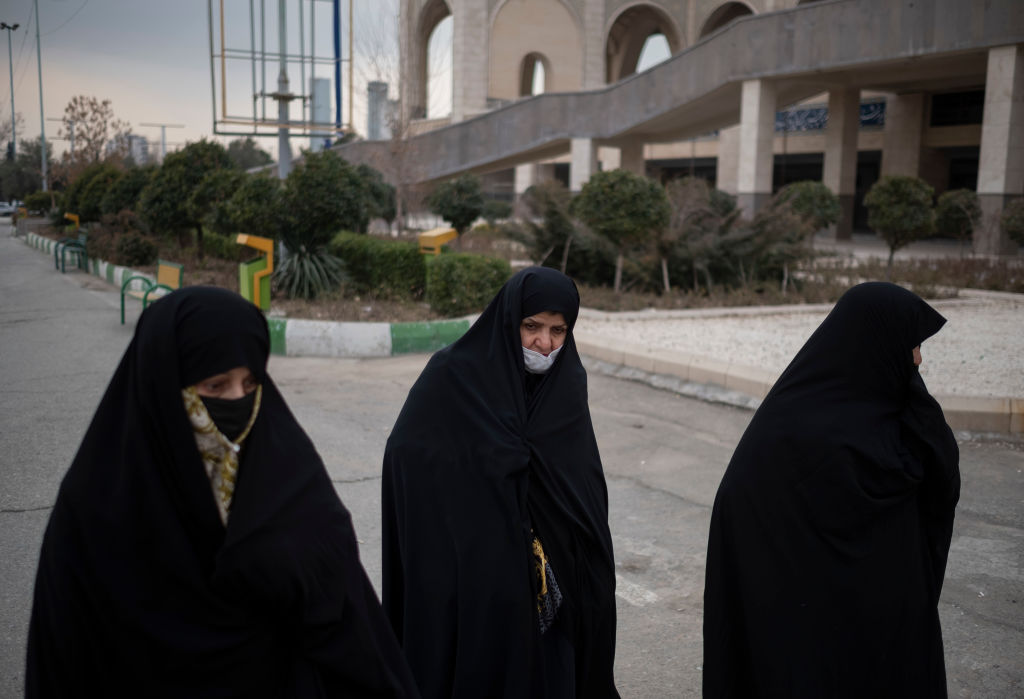Instant Opinion: Black Britons ‘know why Meghan Markle wants out’
Your guide to the best columns and commentary on Friday 10 January

A free daily email with the biggest news stories of the day – and the best features from TheWeek.com
You are now subscribed
Your newsletter sign-up was successful
The Week’s daily round-up highlights the five best opinion pieces from across the British and international media, with excerpts from each.
1. Afua Hirsch in The New York Times
on prejudice in the land of royals
The Week
Escape your echo chamber. Get the facts behind the news, plus analysis from multiple perspectives.

Sign up for The Week's Free Newsletters
From our morning news briefing to a weekly Good News Newsletter, get the best of The Week delivered directly to your inbox.
From our morning news briefing to a weekly Good News Newsletter, get the best of The Week delivered directly to your inbox.
Black Britons know why Meghan Markle wants out
“If the media paid more attention to Britain’s communities of color, perhaps it would find the announcement far less surprising. With a new prime minister whose track record includes overtly racist statements, some of which would make even Donald Trump blush, a Brexit project linked to native nationalism and a desire to rid Britain of large numbers of immigrants, and an ever thickening loom of imperial nostalgia, many of us are also thinking about moving.”
2. Minxin Pei in the South China Morning Post
on Beijing benefitting from global chaos
A free daily email with the biggest news stories of the day – and the best features from TheWeek.com
George W. Bush’s disastrous Iraq war paved the way for China’s rise. Is Trump about to make the same mistake?
“Like Bush, when Trump entered the White House, his administration quickly branded China America’s top geopolitical adversary and adopted a confrontational policy, exemplified by a trade war that, despite a ‘phase one’ agreement, has yet to be resolved. In effect, Trump revived great power competition – focused primarily on containing China – as the organising principle of US foreign policy. Then Trump had Soleimani killed, and all eyes turned towards Iran. If the conflict continues to escalate – even if it stops short of all-out war – the US will most likely redirect significant resources towards confronting the Islamic Republic, and, like after 9/11, move China to the foreign-policy back-burner.”
–––––––––––––––––––––––––––––––For a weekly round-up of the best articles and columns from the UK and abroad, try The Week magazine. Start your trial subscription today–––––––––––––––––––––––––––––––
3. Ravi Ghosh in HuffPost
on the future of the opposition
To solve Labour's identity crisis, candidates must leave labels behind
“After the election result, critics atomised Labour into its supposedly irreconcilable voter groups using these dated metrics, ignoring Britain’s rapidly shifting demographic sands. Politics professor Matthew Goodwin splitting the party into three entities and calling one group an ‘awkward alliance of students and ethnic minorities” is a case in point of this theoretical divide and conquer. As with a similar argument made about the US Democrats, such analysis often seems to suggest terminal disunity — not a strong starting point for any leadership candidate.”
4. Elena Shih in Al Jazeera
on unions in the developing world
Worker organising can counter labour abuse in the Global South
“Take Myanmar as an example; a pivotal country of origin for migrant workers in the manufacturing sector both domestically and abroad. Global North brands have trained factories employing Myanmar workers about responsible business practices and conducted audits to detect labour abuse, yet workers still have limited ways of seeking remediation when their rights are violated. Only workers whose conditions are highlighted by their proximity to privileged consumer markets are understood by such approaches as exploited labourers who deserve attention, and the power remains within the hands of these few actors to stop the abuse.”
5. Emma Brockes in The Guardian
on the benefits of kids talking back
In the age of momsplaining it sometimes takes a child to cut through
“Children, with their sixth sense for the hang-ups of the adults around them, have had to find new ways to enrage us. When I was young you weren’t supposed to be weedy about losing, and you might get shouted at for giving up, but that’s not how we do things now. We are simultaneously worried about our children’s resilience while understanding that yelling at them doesn’t improve the outcome.”
-
 The ‘ravenous’ demand for Cornish minerals
The ‘ravenous’ demand for Cornish mineralsUnder the Radar Growing need for critical minerals to power tech has intensified ‘appetite’ for lithium, which could be a ‘huge boon’ for local economy
-
 Why are election experts taking Trump’s midterm threats seriously?
Why are election experts taking Trump’s midterm threats seriously?IN THE SPOTLIGHT As the president muses about polling place deployments and a centralized electoral system aimed at one-party control, lawmakers are taking this administration at its word
-
 ‘Restaurateurs have become millionaires’
‘Restaurateurs have become millionaires’Instant Opinion Opinion, comment and editorials of the day
-
 Charity shop painting sells for £25,000
Charity shop painting sells for £25,000Tall Tales And other stories from the stranger side of life
-
 Iran claims to have built its first hypersonic missile
Iran claims to have built its first hypersonic missileSpeed Read
-
 U.S. sanctions Russia and Iran for wrongfully detaining Americans
U.S. sanctions Russia and Iran for wrongfully detaining AmericansSpeed Read
-
 Toilet paper was stolen from Queen’s coronation
Toilet paper was stolen from Queen’s coronationfeature And other stories from the stranger side of life
-
 Iran installing public cameras to identify women not wearing hijabs
Iran installing public cameras to identify women not wearing hijabsSpeed Read
-
 Iran and Saudi Arabia agree to reopen embassies, resume flights in China-brokered thaw
Iran and Saudi Arabia agree to reopen embassies, resume flights in China-brokered thawSpeed Read
-
 Sex toy ad joking about Prince Harry is banned
Sex toy ad joking about Prince Harry is bannedfeature And other stories from the stranger side of life
-
 An end to Iran and Saudi Arabia’s seven-year rift
An end to Iran and Saudi Arabia’s seven-year riftfeature Thawing of relations could transform the Middle East